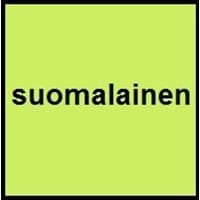Irish vs Finnish
Countries
European Union, Ireland
European Union, Finland
National Language
Ireland
Estonia, Finland, Norway, Russia, Sweden
Second Language
Ireland
Estonia
Speaking Continents
Europe
Asia, Europe
Minority Language
United Kingdom
Republic of Karelia, Russian Federation, Sweden
Regulated By
Foras na Gaeilge
Institute for the Languages of Finland
Interesting Facts
- In Irish language, there are no exact words for "yes" or "no".
- There are different set of numbers for counting humans and another set for counting non-humans in Irish Language.
- Finnish language has adopted many words from Iranian, Turkic, Baltic, Germanic and Slavic languages.
- In Finnish language, there are no articles or grammatical gender.
Similar To
Not Available
Estonian and Livonian Languages
Derived From
Not Available
Not Available
Alphabets in
Irish-Alphabets.jpg#200
Finnish-Alphabets.jpg#200
Writing Direction
Left-To-Right, Horizontal
Left-To-Right, Horizontal
Thank You
Go raibh maith agat
Kiitos
How Are You?
Conas atá tú ?
Mitä kuuluu?
Good Night
Oíche mhaith
hyvää yötä
Good Evening
Tráthnóna maith duit
Hyvää iltaa
Good Afternoon
Tráthnóna maith duit
Hyvää iltapäivää
Good Morning
Dia dhuit ar maidin
Hyvää huomenta
Please
le do thoil
haluta
Sorry
Tá brón orm
Anteeksi
I Love You
Is breá liom thú
Minä rakastan sinua
Excuse Me
Gabh mo leithscéal
Anteeksi
Dialect 1
Connacht Irish
Colloquial Finnish
Where They Speak
Connacht
Finland
Dialect 2
Munster Irish
Rauma
Where They Speak
Munster
Finland, Rauma
Dialect 3
Ulster Irish
Meänkieli
Where They Speak
Ulster
Finland, Sweden
How Many People Speak
Not Available
Speaking Population
Not Available
Not Available
Native Name
Gaeilge (na hÉireann) / An Ghaeilge
suomi / suomen kieli
Alternative Names
Erse, Gaeilge, Gaelic Irish
Suomi
French Name
irlandais moyen
finnois
German Name
Mittelirisch
Finnisch
Pronunciation
[ˈɡeːlʲɟə]
[ˈsuomi]
Ethnicity
Irish people
ethnic Finns
Language Family
Indo-European Family
Uralic Family
Subgroup
Celtic
Finno-Ugric
Early Forms
Primitive Irish, Old Irish, Middle Irish, Classical Irish, Irish
Proto-Finnic language
Standard Forms
An Caighdeán Oifigiúil
standard Finnish
Signed Forms
Irish Sign Language
Signed Finnish
Scope
Individual
Individual
ISO 639 6
Not Available
Not Available
Glottocode
iris1253
finn1318
Linguasphere
50-AAA
No data available
Language Type
Living
Living
Language Linguistic Typology
Verb-Subject-Object
Subject-Verb-Object
Language Morphological Typology
Fusional
Agglutinative, Synthetic
Irish and Finnish Language History
Comparison of Irish vs Finnish language history gives us differences between origin of Irish and Finnish language. History of Irish language states that this language originated in c. 750 whereas history of Finnish language states that this language originated in 1543. Family of the language also forms a part of history of that language. More on language families of these languages can be found out on Irish and Finnish Language History.
Irish and Finnish Greetings
People around the world use different languages to interact with each other. Even if we cannot communicate fluently in any language, it will always be beneficial to know about some of the common greetings or phrases from that language. This is where Irish and Finnish greetings helps you to understand basic phrases in Irish and Finnish language. Irish word for "Hello" is Dia dhuit or Finnish word for "Thank You" is Kiitos. Find more of such common Irish Greetings and Finnish Greetings. These greetings will help you to be more confident when conversing with natives that speak these languages.
Irish vs Finnish Difficulty
The Irish vs Finnish difficulty level basically depends on the number of Irish Alphabets and Finnish Alphabets. Also the number of vowels and consonants in the language plays an important role in deciding the difficulty level of that language. The important points to be considered when we compare Irish and Finnish are the origin, speaking countries, language family, different greetings, speaking population of these languages. Want to know in Irish and Finnish, which language is harder to learn? Time required to learn Irish is 36 weeks while to learn Finnish time required is 44 weeks.





